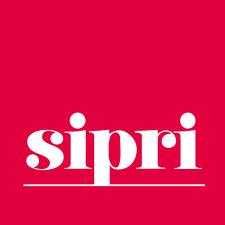 (Stockholm, Utrecht, 19 January 2016) On 22 January, just over 25 months after the start of the civil war in South Sudan, the scheduled formation of the Transitional Government of National Unity will be one of the first major milestones in the peace process. The swearing in of the transitional government would be enormous progress, but nothing in South Sudan is certain and the event may just as easily be postponed. According to the report “Scenarios for South Sudan in 2020” released today by the Stockholm International Peace Research Institute (SIPRI) and Dutch peace organisation PAX, there is hope for a peaceful future if the 2015 peace agreement is implemented and the peace process opened up beyond the current parties. Otherwise, the human cost will likely be tremendous and the country might even risk complete fragmentation. (Stockholm, Utrecht, 19 January 2016) On 22 January, just over 25 months after the start of the civil war in South Sudan, the scheduled formation of the Transitional Government of National Unity will be one of the first major milestones in the peace process. The swearing in of the transitional government would be enormous progress, but nothing in South Sudan is certain and the event may just as easily be postponed. According to the report “Scenarios for South Sudan in 2020” released today by the Stockholm International Peace Research Institute (SIPRI) and Dutch peace organisation PAX, there is hope for a peaceful future if the 2015 peace agreement is implemented and the peace process opened up beyond the current parties. Otherwise, the human cost will likely be tremendous and the country might even risk complete fragmentation. |
| The report outlines five possible scenarios for South Sudan’s future, developed through extensive consultation with a diverse group of South Sudanese actors. In the best scenario, ‘United in diversity’, the 2015 peace agreement is implemented and the peace process consolidated and deepened. Two scenarios, ‘Dictatorship’ and ‘21 Kingdoms’, show at what tremendous cost, in human lives and repression, the victory of either side may come. One scenario, ‘Divided leadership’, illustrates how a badly implemented peace process will lead to renewed war. The last scenario, ‘Fragmentation’, explores how the continuation of war may lead to a complete breakdown of governance.
Since signing the South Sudan peace agreement, president Salva Kiir’s government and Riek Machar’s armed opposition have frequently confirmed their adherence to the implementation process. Yet violent confrontations and human rights abuses have continued and the parties seem to be more interested in victory than in peace. “In spite of all the obstacles, I remain hopeful, as the leaders of South Sudan still have the opportunity to pull their country out of the miseries of war and move towards a ‘United in diversity’ scenario”, says Mr Andrea Minalla, PAX Project Manager in South Sudan. Dr Jaïr van der Lijn, Head of SIPRI’s Peace Operations and Conflict Management team and author of the report, warns: “However, if South Sudan’s leaders continue to believe that they can potentially win the war, then I am very pessimistic, because then the fragmentation of the country is regrettably a very likely scenario. In such a scenario, I am afraid also the international community is unlikely to come to the rescue, in spite of the horrific human suffering and large refugee flows.” The scenarios are intended to gather thoughts on possible long-term developments, stimulate open debate and may assist South Sudan and its international partners in preparing for the future. |
